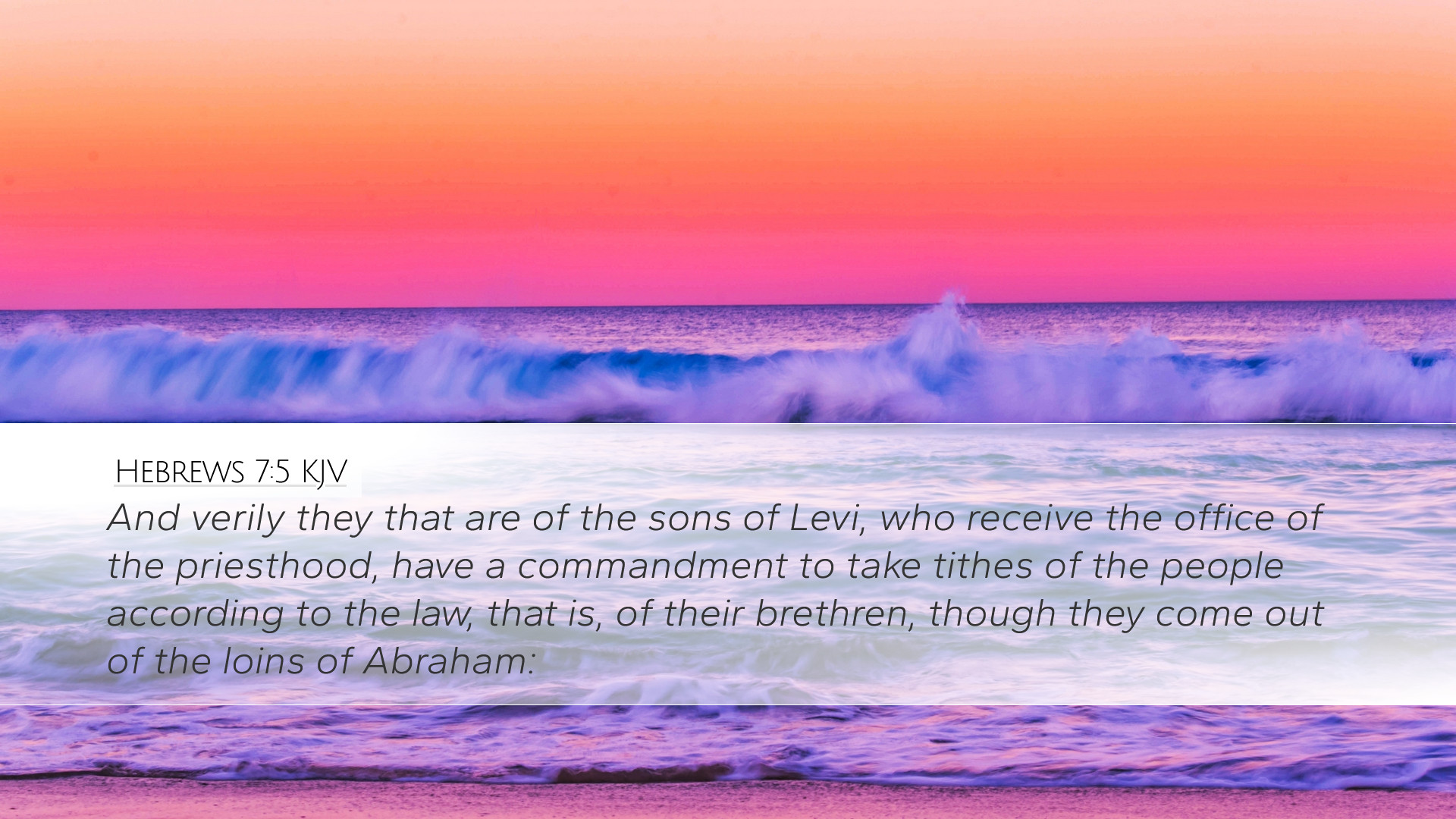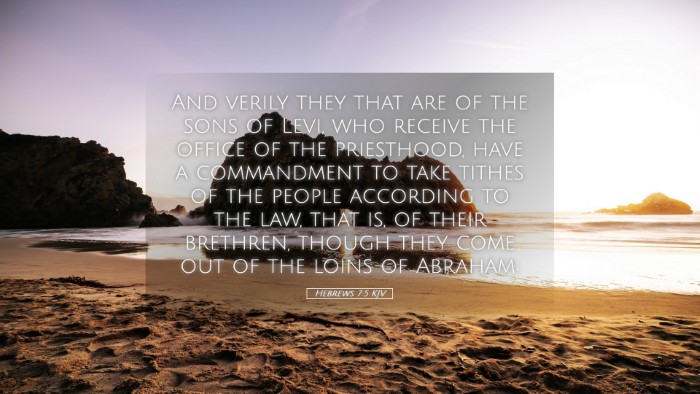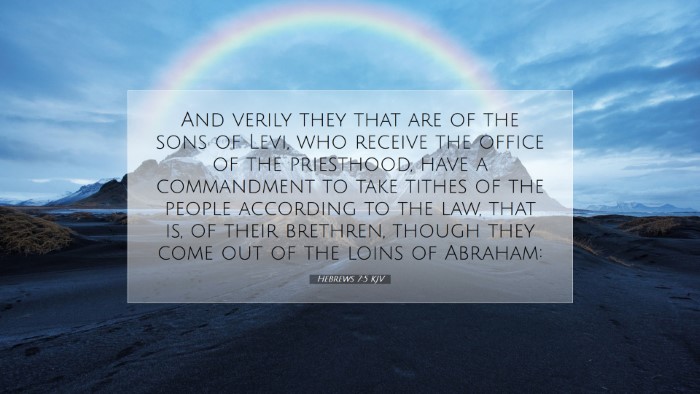Commentary on Hebrews 7:5
Hebrews 7:5 states: "And verily they that are of the sons of Levi, who receive the office of the priesthood, have a commandment to take tithes of the people according to the law, that is, of their brethren, though they come out of the loins of Abraham."
Introduction
This verse forms a critical part of the theological argument in the Book of Hebrews concerning the superiority of Christ’s priesthood over the Levitical priesthood. Here, the author highlights the role of the Levitical priests and their divine commandment to collect tithes from the people, establishing a connection to the covenantal promises made to Abraham.
The Levitical Priesthood
According to Matthew Henry, the significance of the Levitical priesthood cannot be understated, for it was established by divine decree. The priests were not volunteers but were chosen by God to perform sacred duties. This selection was a part of God’s covenant with Israel, and thus the Levitical lineage is essential for understanding the structure of worship in the Old Testament.
Albert Barnes elaborates that the Levites, as descendants of Levi, had specific roles within the temple service, and their authority to collect tithes was mandated by the Mosaic Law. The tithes provided for their sustenance and functioned as a means for the people to recognize their dependence on God’s provision.
The Commandment to Take Tithes
The act of taking tithes demonstrates a principle of stewardship and recognition of God’s sovereignty. Adam Clarke notes that the imposition of tithes was not just a financial duty but was symbolic of a broader acknowledgment of the covenant relationship between God and His people. By setting apart a portion of their earnings, the Israelites reaffirmed their commitment to God's covenant.
This commandment highlights not only the obligations of the Levites but also the spiritual responsibility of the people to support the ministry and the work of the temple. Matthew Henry emphasizes that faithful stewardship is an expression of faith and trust in God.
The Connection to Abraham
In the latter part of the verse, there is a profound connection to Abraham. Barnes points out that although the Levites were to take tithes from their brethren, it is noteworthy that they themselves were descended from Abraham. This relationship places Abraham as a foundational figure in the lineage of priesthood, underscoring his significance in God’s redemptive plan.
Adam Clarke further elucidates this by stating that this connection emphasizes the continuity of God’s promises from Abraham to the nation of Israel. Abraham is seen as the father of faith, and this lineage plays a pivotal role in the unfolding narrative of salvation history.
Theological Implications
The passage presents theological implications regarding the nature of the priesthood and the governance of God’s people. Matthew Henry writes concerning the implications of the priesthood in relation to Christ, who, as high priest, fulfills and surpasses the roles established under the Levitical law. The author of Hebrews deliberately utilizes these connections to illustrate that Christ’s priesthood is not only legitimate but also superior, being based on the order of Melchizedek rather than mere lineage.
Barnes emphasizes that this superior priesthood brings a new covenantal relationship, showing that total dependence on Christ reflects the culmination of all the roles played by the Levitical priests. This progressive revelation becomes essential for understanding New Testament theology.
Practical Applications
The insights from Hebrews 7:5 encourage believers to recognize their own role in the ongoing covenant and to understand the importance of supporting ministry through tithes. Clarke suggests that modern congregations can learn the importance of reverence to God’s commands as acts of worship rather than mere obligation.
- Faithfulness in Stewardship: Just as the Israelites honored God through their tithes, believers today are called to honor God through the resources He has given them.
- Understanding Covenant Relationships: Recognizing the relationship established through Abraham encourages continuity in faith across generations.
- The Supremacy of Christ: Understanding that our High Priest, Jesus, transcends the Levitical priesthood prompts a deeper devotion and acknowledgment of His lordship in our lives.
Conclusion
Hebrews 7:5 serves as a profound reminder of the divine design behind the Levitical priesthood and its connection to the Gospel. The historical context provided by Matthew Henry, Albert Barnes, and Adam Clarke signifies the importance of recognizing God’s sovereignty, the role of stewardship, and the fulfillment of promises through Jesus Christ. As we study these insights, may we be inspired to serve faithfully in our respective ministries, always looking to Christ as our ultimate High Priest.


